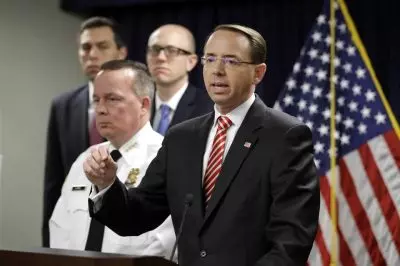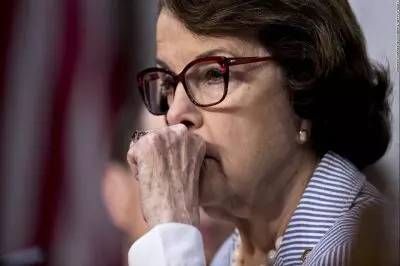 The official legalization of online gambling was once again questioned by the authorities after US Senators Lindsey Graham (R-SC) and Dianne Feinstein (D-CA) submitted their letter to the Department of Justice. In it, they state the potential risks of online gambling and how it could be used for a wide variety of illicit activities and by anyone interested in money laundering. These warnings were addressed to Deputy Attorney General Rod Rosenstein who was requested to review the authority’s 2011 opinion regarding the Wire Act and possibly withdraw it.
The official legalization of online gambling was once again questioned by the authorities after US Senators Lindsey Graham (R-SC) and Dianne Feinstein (D-CA) submitted their letter to the Department of Justice. In it, they state the potential risks of online gambling and how it could be used for a wide variety of illicit activities and by anyone interested in money laundering. These warnings were addressed to Deputy Attorney General Rod Rosenstein who was requested to review the authority’s 2011 opinion regarding the Wire Act and possibly withdraw it.
The two Senators are concerned about the integrity of the Internet and how the legalization of online gambling brings even more threats for the most vulnerable category of the people who surf it, among which children who are easily impressed. Mr. Graham stated that Internet gambling makes the activity more easily accessible and it preys on those who do not know how to properly protect themselves. Online casinos are also very often the arena of ventures by international organized crime groups. The warnings about the risks of online gambling come from many members across the political spectrum and the Senators demand that the regulation position from 2011 is returned to Congress so that a final decision is made.
Online Gambling Regulations in the Past
 As it is known, the said legal opinion from about six years ago established that every state and its authority has the right to chose whether to participate in the online gambling field and make the activity legal or to remain against it and ban its citizens from approaching this sector of the Internet. This right to make the decision for themselves gives the community the chance to think the subject through and even vote whether it should give the green light to the easily accessible form of gambling. Back in 2011, the Office of Legal Counsel at the Department of Justice stated that each state is able to come up with their own laws regulating the online gambling field, and now the potential legalizing could demoralize the opinion of the authority.
As it is known, the said legal opinion from about six years ago established that every state and its authority has the right to chose whether to participate in the online gambling field and make the activity legal or to remain against it and ban its citizens from approaching this sector of the Internet. This right to make the decision for themselves gives the community the chance to think the subject through and even vote whether it should give the green light to the easily accessible form of gambling. Back in 2011, the Office of Legal Counsel at the Department of Justice stated that each state is able to come up with their own laws regulating the online gambling field, and now the potential legalizing could demoralize the opinion of the authority.
The 2011 decision came shortly after the Black Friday fiasco which shook the online poker world and at the time seemed like the only right move to make. Prior to that, the DOJ was holding the legal position that corresponded to the Interstate Wire Act of 1961, which strictly prohibits certain types of gambling businesses to operate across the US. The reversal from 2011 gave the permission to some states to consider online gambling legalization and as many as two years had to pass before the states of New Jersey, Nevada, and Delaware came up with their own online gambling legislation.
The year of 2017 saw a fourth state, Pennsylvania, making online gambling legal across the state. Mr. Rosentein is known for his seizing of many online web domains, reportedly linked to online gambling, back when he was Maryland’s US Attorney. Speaking of reviewing regulations, the Supreme Court will also soon revisit the Federal Sports Betting Ban (PASPA) from 1992 which prohibits all sports betting activities. In turn, several states are going to consider the regulation of sports wagering in 2018. The following months are expected to see a lot of development in the field which has the potential to shape the online landscape across the states.